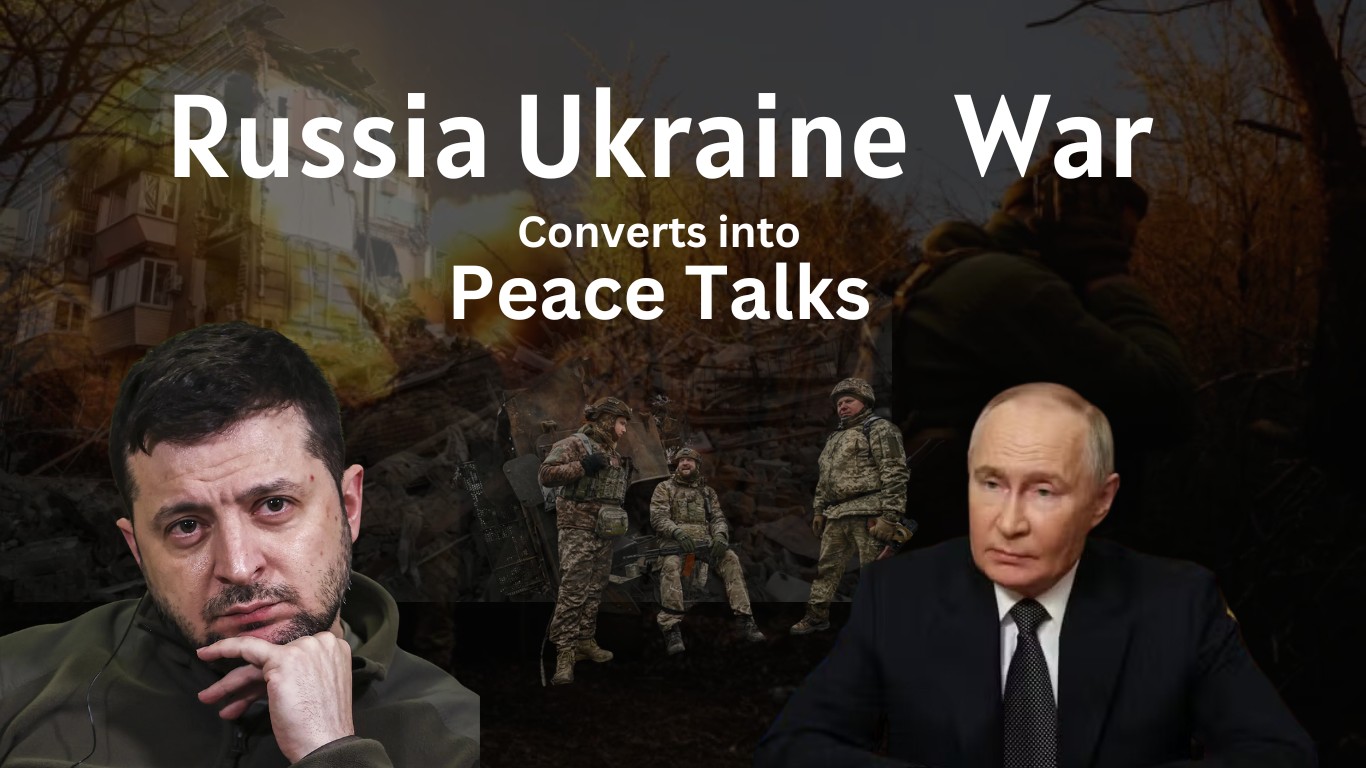The Russia-Ukraine War, an ongoing conflict with far-reaching consequences, may be at a crossroads. Russian President Vladimir Putin recently signaled a significant shift in his stance, expressing openness to peace negotiations without preconditions. This unexpected development could mark a critical moment in the war’s trajectory. It has profound implications for both nations and the global community.
This announcement, while seemingly conciliatory, is layered with complexities, raising questions about its sincerity and the implications for both nations. Is this a genuine opportunity for peace or a calculated move to gain strategic advantage?
Putin’s Proposal and the Future of the Russia-Ukraine War
In a surprising declaration, Putin stated that Russia is ready to negotiate with Ukraine under any circumstances. This marks a departure from previous demands, such as Ukraine abandoning NATO aspirations. This new flexibility in the Russia-Ukraine War negotiations raises questions about Putin’s motives. It also questions the potential for genuine progress toward peace.
What Makes This Russia-Ukraine War Proposal Unique?
Unlike earlier discussions, Putin emphasized negotiating with Ukraine’s legitimate authorities—namely, its parliament. However, this subtle wording does not mention President Volodymyr Zelensky directly. He has been the face of Ukraine’s resistance throughout the war. As his term nears its end, this omission could have significant political implications for Ukraine’s leadership in the ongoing conflict.
Why Reject a Temporary Truce in the Russia-Ukraine War?
Putin proposed talks. However, he firmly rejected the idea of a temporary ceasefire. He insisted on the need for a comprehensive and lasting peace agreement. This stance reflects Russia’s strategic priorities in the War. It aims to solidify territorial gains while projecting an image of diplomatic engagement.
Lessons from the Istanbul Agreement and Its Role in the Russia-Ukraine War
Putin’s reference to the Istanbul agreement was an early proposal aimed at resolving the War. It underscores Russia’s continued interest in revisiting earlier negotiations. However, many Ukrainians viewed this agreement as a capitulation, raising doubts about its relevance to current discussions.
Challenges to Peace in the Russia-Ukraine War
Several critical issues complicate peace efforts in the Russia-Ukraine War, including:
- Territorial Sovereignty: Ukraine’s refusal to cede land contrasts with Russia’s ambitions to legitimize its gains.
- Leadership Dynamics: Zelensky’s role remains uncertain amid Moscow’s focus on Ukraine’s parliament.
- International Mediation: The involvement of global powers will be vital for ensuring a fair and lasting agreement.
Global Stakes in the Russia-Ukraine War Peace Process
The outcome of these peace talks holds immense significance beyond the region. A resolution to the War could stabilize energy markets, safeguard global food supplies, and reduce geopolitical tensions involving NATO and other key players.
Challenges to a Lasting Peace
Achieving a sustainable peace will require addressing several critical issues:
- Territorial Integrity: Ukraine is unlikely to concede land, while Russia seeks to legitimize its gains.
- Sovereignty: Ensuring Ukraine’s independence without external interference remains paramount.
- International Guarantees: Both parties may require assurances from global powers to uphold any agreement.
- Humanitarian Concerns: The toll on civilians demands immediate attention in any negotiations.
The Way Forward
While Putin’s announcement marks a shift in rhetoric, the path to peace is fraught with challenges. For any negotiations to succeed, mutual trust, international mediation, and genuine compromise are essential.
The world closely observes the ongoing Russia-Ukraine War. This conflict tests the resilience of both nations. It also challenges the global commitment to upholding peace and sovereignty. Only time will reveal if this is a turning point. It could also be another chapter in a conflict that has already exacted a heavy toll.



